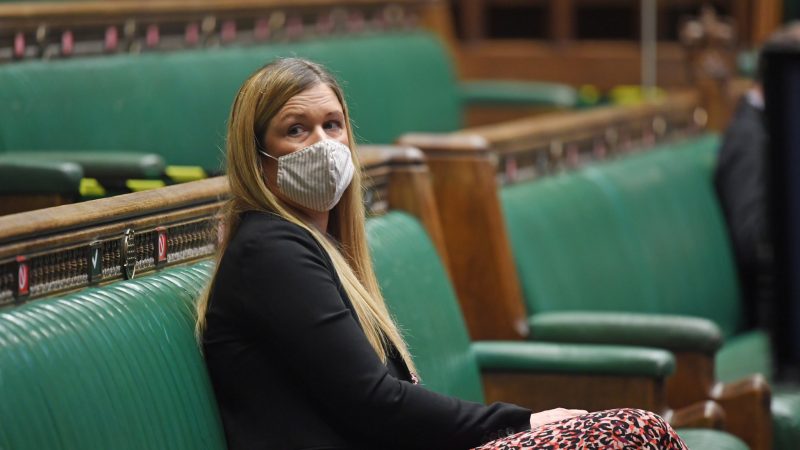
Labour has announced that the party in government will introduce tougher sentences for the crime of spiking, amid alarm over falling conviction rates and reduced average sentences.
The plan to refer spiking sentencing to the Sentencing Guidelines Councils for new guidance when Labour takes power comes after new research showed a significant drop in prosecution and conviction rates in recent years.
Marking International Women’s Day today, Labour will bring a motion to the House of Commons urging the government to increase the minimum sentence for spiking in a bid to tackle violence against women.
The opposition party will also call on ministers to introduce other measures, including raising the minimum sentences for rape and stalking, and implementing Labour’s support package for serious sexual violence victims.
Shadow justice minister Ellie Reeves said: “This high-on-tax, soft-on-crime Conservative government is failing in its basic duty to protect women and girls from violent criminals, who use spiking as a premeditated way of committing the most serious sexual offences.
“This government’s abysmal record on tackling violence against women and girls through the criminal justice system shows that it is letting violent criminals off and letting victims down. It has effectively decriminalised rape.
“Labour will put security at the heart of its contract with the British people. That is why today we’re announcing that we will toughen sentences for spiking, which disproportionately affects women, and girls and toughen minimum sentences for rape.”
Analysis by Labour of data from the House of Commons Library found that those convicted of drink spiking received sentences of only six years on average, despite a marked rise in spiking incidents in recent years.
Labour found that there were only 36 prosecutions and 20 convictions for “other miscellaneous sexual offences” in 2020. The category includes spiking, defined as “administering a substance with intent to stupefy or overpower to engage in sexual activity”.
The figure for 2020 is 30 fewer prosecutions than took place in the same category in 2014. In total between 2010 and 2020, there were only 512 prosecutions and 286 convictions for ‘miscellaneous sexual offences’.
Labour research also found that there have not been more than 66 prosecutions in any year since 2010, and 512 in total between 2010 and 2020, with only 0.56 convictions per prosecution over the time period as a whole.
Data suggests spiking offences far exceed the current conviction rate. YouGov polling released in November 2021 revealed that one in nine women in the UK say they have had their drink spiked.
A National Police Chiefs Council representative told a home affairs select committee in January that 1,903 crimes that could be related to spiking were reported in England and Wales in 2019.
Labour recently sought to amend the police, crime, sentencing and court bill in the House of Lords to introduce a minimum sentencing for spiking. Ministers removed the changes when it returned to the House of Commons.
Below is the text of Labour’s opposition day debate motion today on violence against women.
Keir Starmer
Angela Rayner
Steve Reed
Ellie Reeves
Anna McMorrin
Sir Alan Campbell
Support for victims of rape and sexual violence
That this House commemorates International Women’s Day; regrets that under this government conviction rates for rape have reached a historic low and that the typical delay between reporting an offence of rape and the completion of the resulting criminal case is over 1,000 days; calls on the government to introduce minimum sentences for stalking and rape, to raise minimum sentencing for spiking and to implement Labour’s survivors’ package for victims of rape and serious sexual violence to restore trust in the criminal justice system; and further calls on the government to begin an immediate assessment of the impact of setting up specialist rape offence courts on the significant Crown Court backlog of rape cases, as recommended by HM Crown Prosecution Service Inspectorate.




More from LabourList
‘I was wrong on the doorstep in Gorton and Denton. I, and all of us, need to listen properly’
‘Why solidarity with Ukraine still matters’
‘Ukraine is Europe’s frontier – and Labour must stay resolute in its defence’